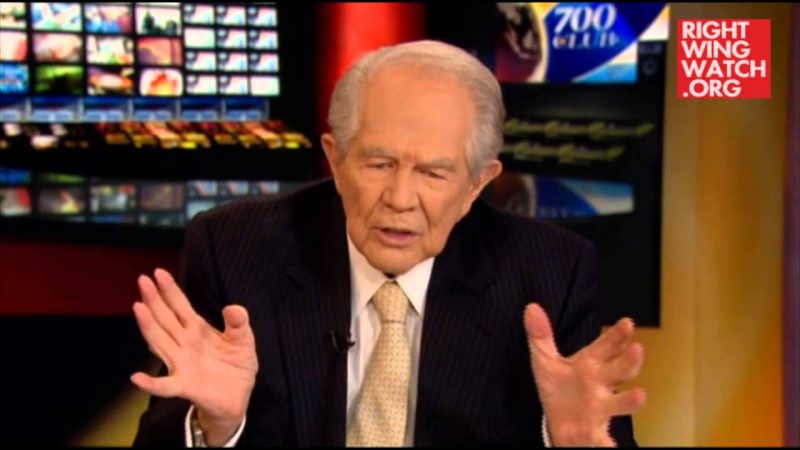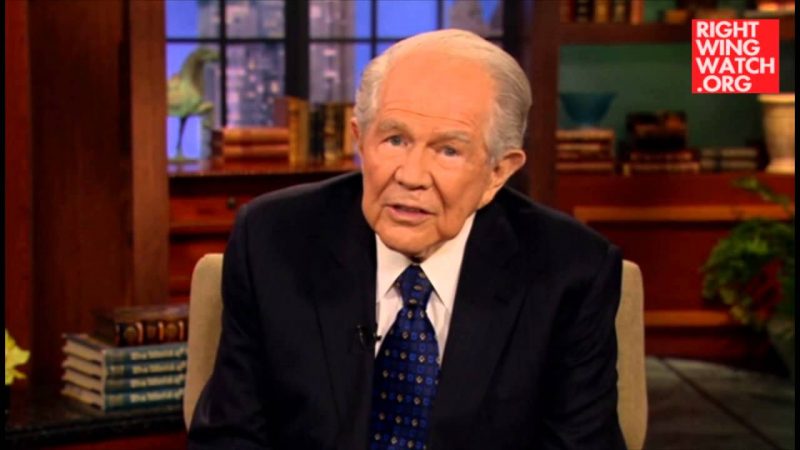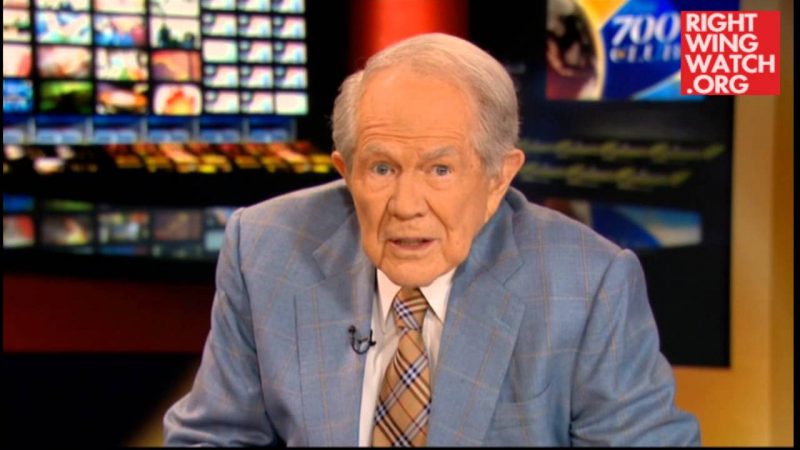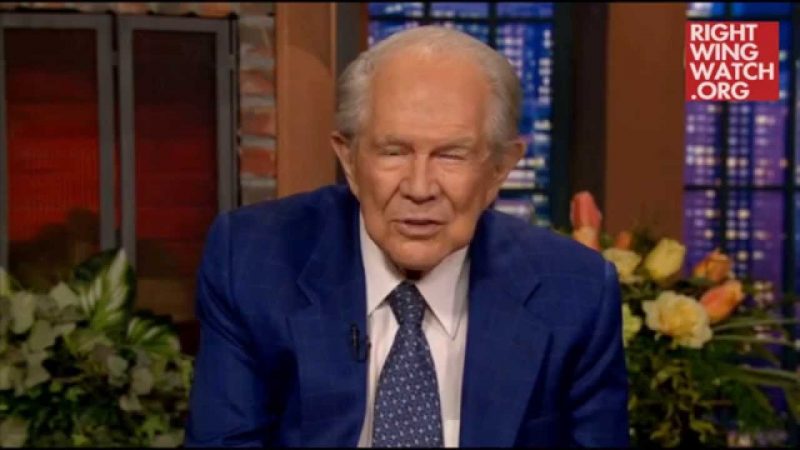Remember about a month ago when it was reported that Pat Robertson had threatened to kill Phillip Busch, the man who is suing him over his “Age-Defying Shake”? Well, Robertson now denies threatening him, though he does admit that he warned Busch that God was going to punish him:
The evangelist’s remarks were made off the record, before a court reporter and videographer began recording the proceedings. But a transcript of the deposition includes a discussion about what he said.
Busch, acting as his own attorney, asked to speak with U.S. Magistrate Judge James Bradberry “concerning Mr. Robertson’s comments when he came in here, his off-the-record comments to me, which I perceive to be a threat against my life.”
Robertson: “It’s not a federal crime to invoke God’s power, and that’s all I was doing…. There was no threat against your life, and I certainly didn’t mention your family…. You are delusional.”
Busch: “What, exactly, did you say?”
Robertson: “I said he’s gonna take your strength away…”
Busch: “He’s gonna take my strength away?”
Robertson: “… that you are so proud of.”
While this is clearly the most sensational aspect of the on-going lawsuit, it is the least of Robertson’s worries at the moment.
According to an article in The Virginian-Pilot, Robertson began touting his “Age-Defying Shake” in 2001 on “The 700 Club,” offering to send the recipe to anyone who asked for it. In 2005, Busch contacted CBN and told them he had lost 200 lbs on the shake and Robertson flew him to Virginia for a live interview on the program.
Around the same time, Busch discovered that Robertson’s shake was being sold under another name in ready-to-mix powder form by General Nutrition Corp. and Busch sued Robertson, GNC, and CBN, claiming that they were using him to promote the shake without compensation.
Robertson and CBN insist that the “Age-Defying Shake” he promotes on air and the “Pat’s Diet Shake” sold at GNC are two separate things.
As The Virginian-Pilot notes, emails suggest otherwise:
But e-mails and other correspondence that have become part of the court record suggest an intertwining of the two dating to March 2004.
That’s when Dave Hawk, a Pittsburgh bodybuilder who identified himself as new projects director for GNC and soy producer The Solae Co., e-mailed CBN asking to speak with a Robertson associate.
Robertson’s assistant, G.G. Conklin, forwarded the e-mail to attorney Isakoff with the comment: “I’m wondering if he’s interested in packaging Pat’s Age-Defying Shake? That would be interesting.”
Isakoff responded: “I think we should follow up on this. GNC is big.”
Days later, after talking to Hawk, Isakoff reported back to Conklin: “He thinks there is a market for Pat’s recipes.”
Soon Philippe Ballet, an account manager at St. Louis-based Solae, submitted a proposal on “how Solae could help CBN to launch a nutritional product line.”
As Hawk explained in a June e-mail: “This concept would expand to other products that… could be sold similar to ‘Newman’s Own’ products.”
By December, a contract had been drafted.
“I think we are very close on the contract and I just need Pat’s approval,” Isakoff wrote Hawk. “He is exceptionally excited about this, and ready to move forward. Let’s Go!”
Robertson has described the deal in court papers as an agreement in which he licensed the use of his name and shake recipe to the manufacturer. Details of his compensation have not been spelled out.
In an undated letter addressed to GNC store managers and franchise owners, Robertson wrote that 750,000 CBN viewers had requested information about his diet and exercise program:
“In addition to our already built-in demand, I will continue to talk about my ‘Weight Loss Challenge’ and Pat’s Diet Shake on regular weekly national television broadcasts.”
The real concern for Robertson at this moment is probably not the issue of compensation for Busch, but whether he is going to get slammed by the IRS for apparently using his tax-exempt operations to benefit his for-profit ventures:
John Colombo, an expert on tax-exempt organizations at the University of Illinois College of Law, said the case raises questions about tax-law compliance.
“It seems to me that arguably, CBN was inappropriately conferring benefits on Pat Robertson as a result of giving him free advertising and free exposure for his product,” Colombo said. “If they’re giving away stuff to Pat Robertson that they shouldn’t be giving away, then that’s a problem.”
If the Internal Revenue Service found that to be the case, he said, it could levy an excise tax on Robertson for receiving excess benefits from CBN.








